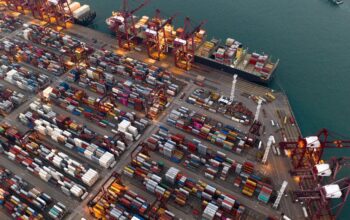Introduction to Trending Supply Chain Frameworks
Imagine a supply chain as a complex puzzle where every piece matters for efficiency and resilience. As the world navigates global challenges, innovative frameworks are emerging to help businesses manage their supply chains better. Let’s delve into some of the most promising frameworks that are making a difference.
1. Gartner’s Six-Step Cost-to-Serve Framework
This framework, introduced by Gartner, offers a structured approach to measuring the real cost of serving customers. It helps companies understand their supply chain costs deeply and make informed decisions to optimize their operations. The framework focuses on detailed analysis, helping businesses pinpoint areas for improvement and implement changes that maximize profitability.
2. Cyber Resiliency Framework
A recent focus area is enhancing cyber resiliency in supply chains. This involves strengthening governance, promoting systemic cyber resiliency, and advancing risk assessments. The key here is to ensure supply chains can not only withstand cyber threats but also adapt quickly to evolving risks. This proactive approach is essential in today’s digitally interconnected world.
3. AI-Driven Supply Chain Optimization
Artificial Intelligence (AI) is transforming supply chain management by optimizing routes, predicting disruptions, and enhancing transparency. Companies are using AI to scrub unnecessary mileage from routes and improve sustainability. For instance, AI-driven predictive analytics can help anticipate natural disasters or geopolitical disruptions, allowing businesses to prepare accordingly.
4. Blockchain for Small to Medium Manufacturers
A project by Professor Thor Wuest aims to enable small manufacturers to compete more effectively. He is developing a blockchain-enabled framework to improve data sharing and resilience in manufacturing networks. This technology helps smaller companies meet large manufacturers’ demands for real-time data, enhancing overall supply chain agility and performance.
5. AI in Supply Chain Due Diligence
A new framework integrates AI into supply chain due diligence to improve Environmental, Social, and Governance (ESG) compliance. It uses AI to monitor and verify ESG factors, helping companies navigate complex regulatory landscapes efficiently. However, challenges like data quality and algorithmic bias remain key areas of focus.
These frameworks are not just theoretical constructs but real-world solutions that organizations are using today to stay competitive and resilient in the face of global challenges.
References:
- https://www.scdigest.com/ontarget/25-04-24_gartner_cost_to_serve.php
- https://www.weforum.org/stories/2025/04/three-key-directions-for-the-cyber-resiliency-crisis-in-global-supply-chains/
- https://www.fcltglobal.org/resource/rethinking-the-emerging-markets-exit-ai-supply-chains-and-the-case-for-patience/
- https://logisticsviewpoints.com/2025/04/25/supply-chain-logistics-news-april-21st-24th-2025/
- https://www.sc.edu/study/colleges_schools/engineering_and_computing/news_events/news/2025/smms_supply_chain_interruptions_wuest.php
- https://venngage.com/blog/ai-prompts-for-marketing/
- https://papers.ssrn.com/sol3/papers.cfm?abstract_id=5228284
- https://commission.europa.eu/document/download/9efda8ad-af4f-4e7f-ab15-871e72f45830_en?filename=Evaluation+study+of+the+future+of+the+Europe+Direct+Contact+Centre+November+2024.pdf&prefLang=bg



